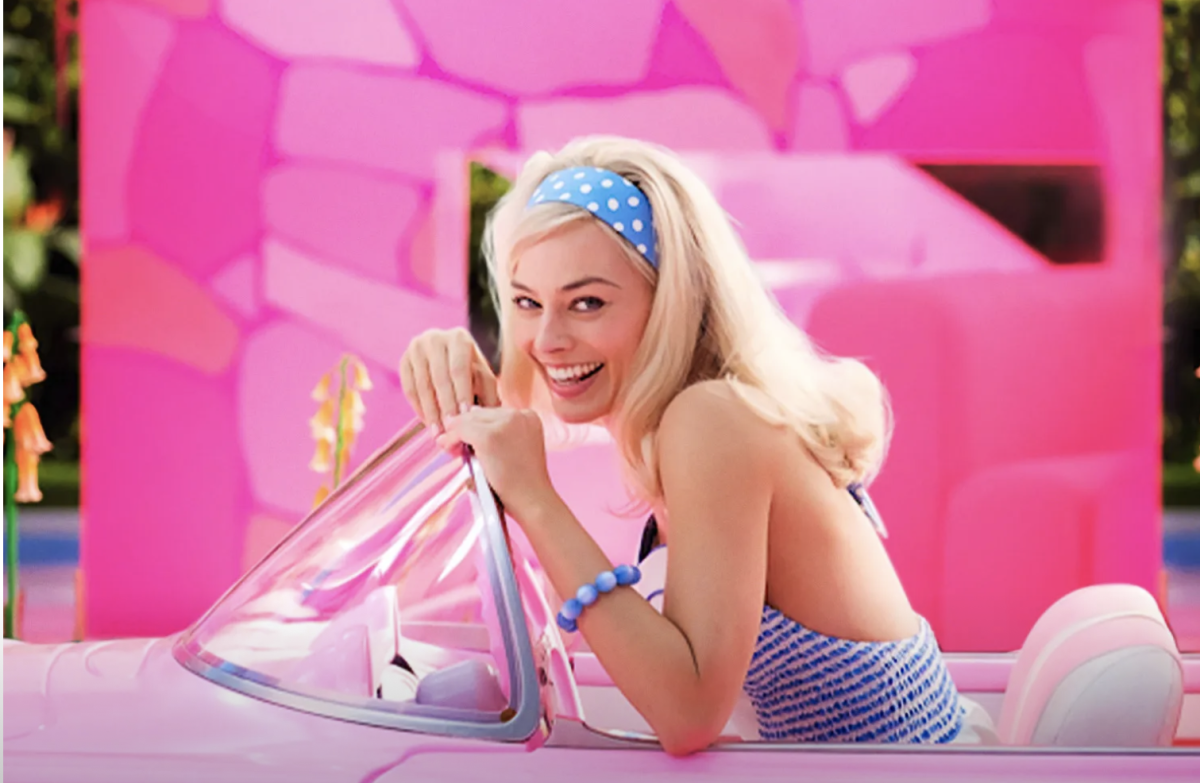
Margot Robbie is the perfect human living doll in Greta Gerwig’s Barbie. Photo: Supplied.
Imagine if you will the beginning of Stanley Kubrick’s 2001: A Space Odyssey.
Instead of monkeys playing with bones and then smashing them at the appearance of the monolith, girls are playing with dolls and start smashing them on the appearance of a monolithic Barbie doll.
The music is ominously the same: Strauss’s Also sprach Zarathustra, based on the book of the same name by Friedrich Nietzsche, which deals with the concepts of good, evil, death, man and god.
This is how Greta Gerwig starts her new film Barbie.
Barbie (Margot Robbie) is the perfect human doll living in the perfect fabricated world – some might argue dystopia – of Barbieland.
All the other Barbies hold positions of power, and all the Kens, including the man doll who loves her (Ryan Gosling), are subordinates in this pink matriarchy.
Everything is going swimmingly until Barbie has an existential crisis and entertains the notion of death. And it gets worse, she develops cellulite, her heels fall flat and her capacity to float disappears.
Urgent action is called for and she has to consult Weird Barbie (Kate McKinnon), an outcast in Barbieland, who tells our protagonist that she and everyone else there are toys and the only way she can address her malady is to go into the real world and find her owner.
Barbie sets out for the portal that will take her to Los Angeles, and Ken decides to hitch a ride.
While Barbie is searching for her owner, Ken finds a library and happens on the idea of patriarchy – and being a Ken doll, believes it has something to do with horses as well.
The Mattel Company, headed by the ever-brilliant Will Ferrell, has to capture Barbie and put her back in her box, literally, because this has happened before and it was a disaster. They don’t really care about Ken, he’s just an adjunct to proceedings, which he knows and feels very keenly.
Barbie, having been captured, escapes and finds her owner. But it’s her mum Gloria (America Ferrera), an employee of the Mattel Company, who is responsible for the split in the fabric of the Barbie space-time continuum. Now they must work to see if it can be repaired.
Greta Gerwig co-wrote Barbie with her husband, Noah Baumbach. Her last directorial outing was 2019’s fresh and invigorating version of Louisa May Alcott’s Little Women.
She used Alcott’s work, rewriting several times to gently focus on how the main character pushes through familial and gender boundaries to bring her life’s work into the real world.
Here, Gerwig again addresses the disparity of power between men and women and gives the Barbie myth a healthy shot of feminism. But although the aim is true, this is not a polemic on the patriarchy but a comedy.
The dialogue is forever sharp and contains more than one double entendre (a term she seems surprised she actually knows), in a fast-moving film.
Of course, Robbie has the best lines and she delivers them without a hint of irony or sarcasm. She is the perfect woman to be the perfect stereotypical doll, as the narrator will explain. Robbie is also one of the producers and approached Gerwig to write the script.
Gosling is a stereotypical Ken – so blonde, so handsome, so brooding, resenting that he is just Ken and nothing else unless Barbie takes him into her orbit.
It’s him more than her that causes the greater upset, serving as a mockery of men in power and what they do when they abuse it. It’s a heady mix of entitlement and stupidity, again like the real world.
For a film like Barbie to work, it requires the audience to suspend reality completely and accept its conceit, which I readily did. Others may find it a little bit too much, too pink, too, well, Barbie.
I don’t think it is aimed at a particular audience either. While there’s no doubt most teenage girls will make up a large chunk of the audience, I suspect Gerwig’s indie pedigree will ensure a more diverse response to the film.
I’m a 62-year-old white man and was swept up in its fresh take on a raft of ideas and came away thinking this film deserves four out of five stars in the good, evil, death, woman, man and god stakes.
Barbie is showing at most major cinema chains.
Original Article published by Marcus Kelson on Riotact.


